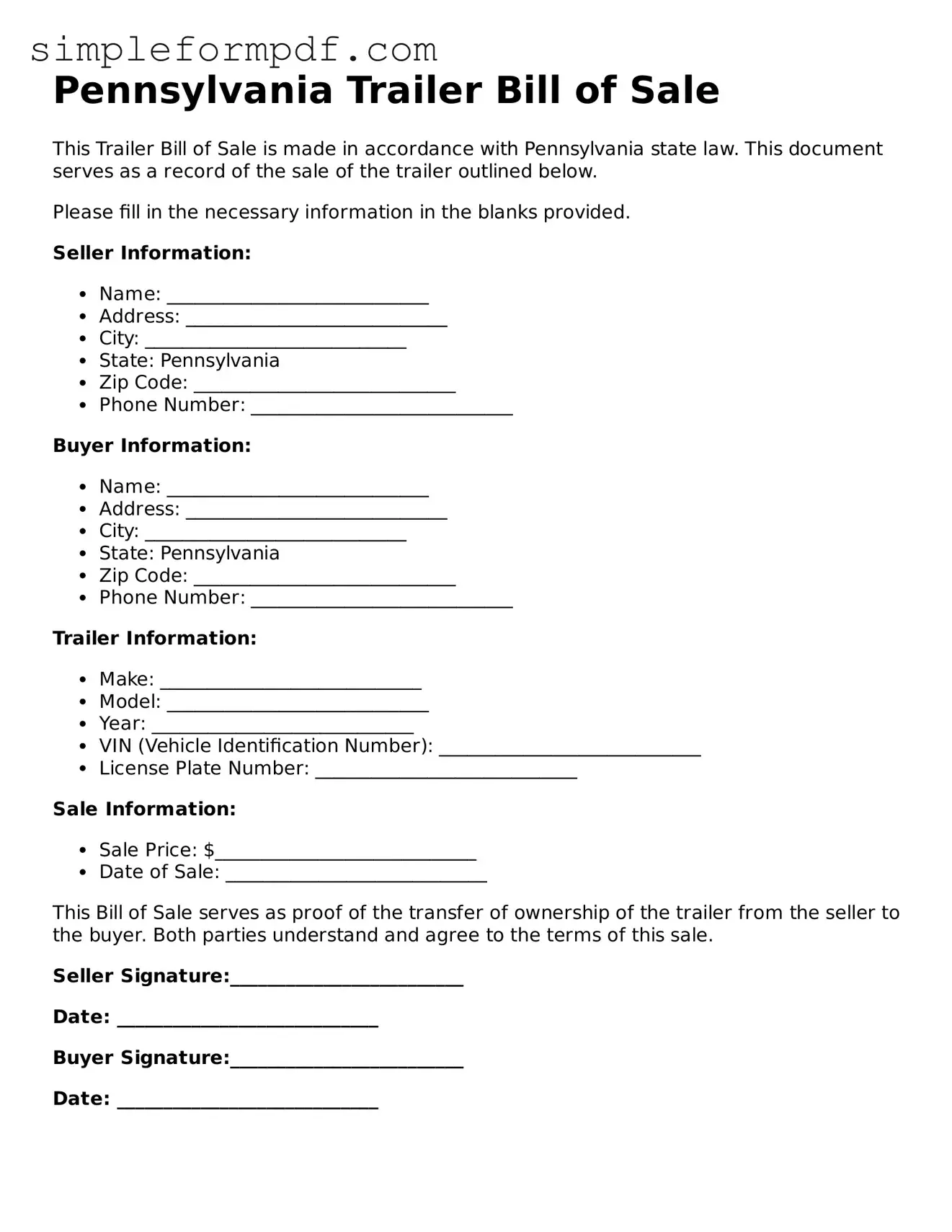Free Trailer Bill of Sale Form for the State of Pennsylvania
The Pennsylvania Trailer Bill of Sale form is a crucial document used for transferring ownership of a trailer from one party to another in Pennsylvania. This form provides essential details about the trailer, including its identification and the terms of the sale. Understanding its importance can help ensure a smooth transaction and protect both the buyer and seller.
Ready to fill out the form? Click the button below to get started!
Launch Editor

Free Trailer Bill of Sale Form for the State of Pennsylvania
Launch Editor
Need instant form completion?
Finish Trailer Bill of Sale online in just a few minutes.
Launch Editor
or
Download PDF
